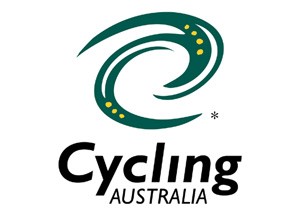Federation accepts that it has no sanctioning power over rider as he no longer holds Australian licence
 Cycling Australia’s CEO Adrian Anderson has taken a strong line in the Michael Rogers Clenbuterol case today, stating that he believes the rider should face maximum punishment if he is found guilty in relation to the positive test announced yesterday.
Cycling Australia’s CEO Adrian Anderson has taken a strong line in the Michael Rogers Clenbuterol case today, stating that he believes the rider should face maximum punishment if he is found guilty in relation to the positive test announced yesterday.
However Anderson has also admitted that CA is essentially toothless in the matter, as the federation is no longer the one that Rogers is primarily aligned to.
“CA were alerted of the positive test via the UCI media release this morning,” said Anderson, speaking on the matter. “Whilst we respect Michael Rogers’ right to defend himself, we will support the maximum sanctions under the WADA code if he is found guilty of doping.”
The words are largely token, though, given that the rider does not hold an Australian racing licence. Instead, it is thought that he is registered in either Switzerland or Italy. Because of that CA will not be the federation which decides the sanction in question.
Anderson acknowledged this when the point was put to him. “CA will support WADA, ASADA and the applicable National Federation in whatever action they deem appropriate.”
CA came under pressure as regards anti-doping as some of the country’s former riders were implicated in the US Postal Service affair or other investigations. Matt White was a member of the US Postal Service team and admitted using banned substances during that period.
More recently, Stuart O’Grady was red-flagged in retests of the 1998 Tour de France, with his samples being determined to have been suspicious. He subsequently admitted doping before that race, but claimed he rode clean for the rest of his career.
The Wood Review carried out in relation to doping in sport recommended a number of measures, which CA stated today have been implemented in the past year.
These include a review of the federation’s supplements policy, the introduction of an athlete mentor programme to monitor the riders stepping up to the pro peloton, the establishment of an Ethics and Integrity panel which has the aim of providing independent advice and assistance to CA’s board in relation to doping matters plus other areas, and the enforcement of ASADA’s anti-doping education as one of the criteria for national selection.
CA also requires every staff member, coach and rider who work for or represent the country in international competition to sign a statutory declaration stating that they have never been involved in illegal doping practices.
Anderson said that CA “supports every measure to detect and prosecute doping offenders.”
Rogers’ positive test came after he won this year’s Japan Cup. Prior to racing there, he competed in the UCI’s Tour of Beijing in China, a country where WADA previously stated there was the possibility of Clenbuterol contamination from food.
A statement by his Tinkoff Saxo team yesterday said that the rider was provisionally suspended [as per UCI rules – ed.] and that Rogers believes food was the likely source of the Clenbuterol positive.
“The Australian explained to the team management that he never ingested the substance knowingly nor deliberately and fears that the adverse analytical finding origins from a contaminated food source,” said his team.
Even if that is the case, Rogers is still liable to be sanctioned. Under WADA rules, athletes are responsible for every substance entering their body. Other teams competing in the Tour of Beijing in the past have chosen to eat chicken and fish only, or even avoid meat altogether, in order to limit possible exposure to Clenbuterol.